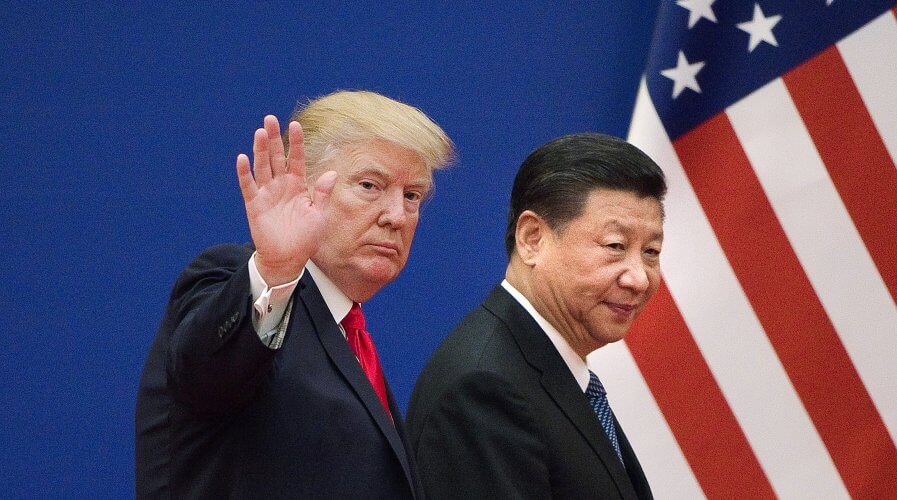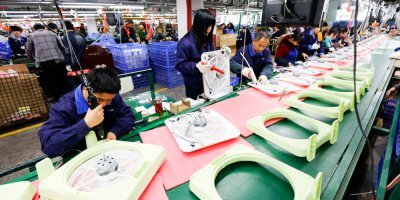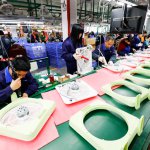
US President Donald Trump and China’s President Xi have a lot to work out for the tensions to dissipate. Source: Photo by Nicolas Asfouri / AFP
US-China strain much bigger than trade war says NUS professor
“This issue is much bigger than a ‘trade war’. It’s a geopolitical and strategic rivalry, and, in some cases, verging on a kind of hybrid cold war,” NUS Business School Professor Alexander Capri told Tech Wire Asia of the strained relationship between US and China.
“Thus, this is an existential issue that pervades the global economy, regional and global security and everything in between. This century will see this competition play out in a changing global landscape.”
Truth be told, the increasing tensions between the US and China has been troubling tech companies across the world — more than Brexit has.
Chinese companies, both in the technology space such as Huawei and ZTE and in other sectors such as manufacturing, agriculture, and several others thanks to the tariffs the US is deliberating over, will be severely impacted.
On the other hand, experts in the US have raised concerns about the ‘trade war’ severely impacting the US dollar and the prices of oil and gas — implying that there will be consequences for businesses across the nation.
“Any of the ‘China 2025’ industries and niche firms will see increased headwinds. But when US export controls and sanctions are imposed in a highly rationalized global value chain, there is extensive collateral damage.
“In this case, its all the American and other foreign firms that are entangled in these very complex ecosystems.
“A full-on assault on Huawei, for example, will damage many American firms, from Qualcomm to Intel to a host of first and second tier suppliers — and all the service-focused firms that add value to a cross-border transaction.”
Ramifications for China more profound?
All Chinese tech firms are now at risk of ending up on the US government’s denied parties list or they could become the targets of new import-export controls.
As a result, the country’s trading partners in the US will need to obtain special approvals and licenses from US government agencies before any technology, IP, components, subcomponents can be sold, pointed out professor Capri.
Breaking it down further, it means (ala ZTE), vital supply chains can be extinguished overnight.
An important thing to realize at this point is that the US-China trade war isn’t only impacting businesses in the two countries, it’s forcing other countries to pick sides, creating a divide overall.
“The US market (and increasingly the markets of US allies) will close to Chinese tech firms.”
Soon after the US sounded the alarm on Huawei’s 5G technology, allies Australia, New Zealand, and the UK followed suit — and this sort of behavior is exactly what Capri is pointing towards.
“And then there’s the issue of corporate espionage and IP theft. More Chinese firms will be singled out and named in criminal cases, and they will be accused of functioning as agents of the communist party. All of this will lead to yet more sanctions.”
Capri also contends that all Chinese tech exports will be viewed with suspicion and any items that are deemed to have ‘national security’ sensitivity will likely be blocked or subjected to stiff non-tariff barriers.
This will add costs and complexity to value chains and will require firms to implement robust supply chain security mechanisms that result in more transparency and traceability.
“In some cases, this will mean looking for new partners and building new ecosystems. Firms that are identified as essential to the ‘Made in China 2025 Plan’ will be especially vulnerable.”
Although the next few weeks are crucial to how things turn out, a worst-case scenario that Capri points out is where restrictions are placed on the movement of human capital (both virtually and physically).
“Even Western academic institutions are coming under scrutiny for facilitation IP and tech transfer to perceived hostile actors, or have been accused of receiving R&D money from Beijing with the perception of being co-opted by China’s central planners.”






